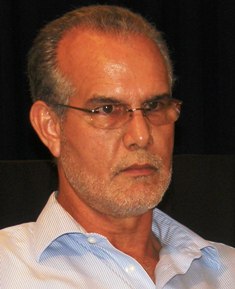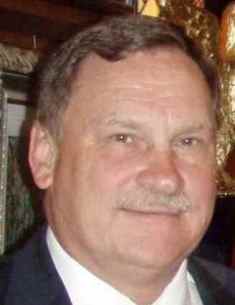Archive for September 21st, 2009

Government pay cut reversal
 (CNS): Civil Servants across the Cayman Islands were breathing a sigh of relief this weekend following the announcement that public sector pay will not be cut. Chief Secretary Donovan Ebanks told CNS that the 2% pay reduction proposed earlier this month (11 September) will not be part of the current budget exercise. The proposal which would have reduced expenditure by only $2.5 million had been rejected by the Civil Service Association, who said they had put forward a considerable number of other options that would generate revenue and reduce government expenditure without burdening civil servants alone.
(CNS): Civil Servants across the Cayman Islands were breathing a sigh of relief this weekend following the announcement that public sector pay will not be cut. Chief Secretary Donovan Ebanks told CNS that the 2% pay reduction proposed earlier this month (11 September) will not be part of the current budget exercise. The proposal which would have reduced expenditure by only $2.5 million had been rejected by the Civil Service Association, who said they had put forward a considerable number of other options that would generate revenue and reduce government expenditure without burdening civil servants alone.
Leader of Government Business McKeeva Bush, who spoke to News 27 by telephone from London Friday evening, confirmed that government had decided not to pursue the 2% cut given the financial challenges that civil servants were facing and that it would worsen conditions. He said that the government would have to look at increasing fees instead and was still negotiating with the UK over its approval for further borrowing.
On Sunday a UDP spokesperson told CNS that, although the LoGB had returned to Cayman, the negotiations with the UK were not yet complete and borrowing approval had still not been granted with regard to the $372 million that government will need to balance this year’s budget.
Government has confirmed that the Legislative Assembly will be meeting on Friday 25 September to begin presenting the 2009/10 budget along with the UDP’s strategic policy statement. Bushhas also announced that there will be a press conference on Thursday morning (24 September) and a public meeting in the evening to discuss the budget proposals, though a venue has not yet been confirmed.
Last month Overseas Territories Minister Chris Bryant wrote to Bush and explained that, before the Foreign and Commonwealth Office was prepared to permit the Cayman government to incur further debt, it wanted to see the introduction of more sustainable methods of raising revenue such as direct taxation which is not solely dependent on the offshore sector
Bush, however, has said he will not introduce new direct taxes but has conceded the need to find revenue measures outside of the traditional industries of tourism and financial services. He has so far proposed diversifying the economy, generating more overseas inward investment and increasing some existing fees, as well as introducing other new consumption related fees or taxes. The UDP leader has so far remained firm on his refusal to introduce direct taxes such as incomes, sales or property tax.

Prison fails on rehab
 (CNS): Despite the fact that the prison management system was supposedly overhauled more than three years ago in order to focus on rehabilitation and the reduction of recidivism rates, the latest report on the Cayman prison system has revealed that it is still failing when it comes to rehabilitating prisoners. The authors of the most recent review said there are a number of gaps in achieving offender outcomes and weaknesses in the current programmes which are concerned with rehabilitation, especially given that most prisoners will be let out into the community at some point.
(CNS): Despite the fact that the prison management system was supposedly overhauled more than three years ago in order to focus on rehabilitation and the reduction of recidivism rates, the latest report on the Cayman prison system has revealed that it is still failing when it comes to rehabilitating prisoners. The authors of the most recent review said there are a number of gaps in achieving offender outcomes and weaknesses in the current programmes which are concerned with rehabilitation, especially given that most prisoners will be let out into the community at some point.
The report by Orren Merren (above) with support from the FCO’s Regional Overseas Territories Prison Adviser, Stephen Fradley, was commissioned by Governor Stuart Jack in the wake of the killing of Sabrina Schirn in May of this year. Schirn’s body was found close to Wilderness Farm, the prison’s external agricultural facility in East End. Randy Martin, a category C prisoner, has been charged with her murder.
In the report Orren recommends that the farm be closed because he states that the risks of using a facility so far from the prison are not outweighed by its rehabilitation value, which he said was severely limited.
“There are frankly too many risks and not enough benefits,” writes Orren. “The farm is too far from HMP Northward in the event of any incident needing a prompt response from other Prison Officers.” He noted that the vast expanse offered too many areas in which to hide and too many opportunities “for prisoners to abscond, cultivate illegal crops for use or sale, or worse.”
He noted that any benefits realised at the Wilderness Farm can be more easily obtained and more effectively managed nearer to Northward, and Orren criticized the idea that horticultural experience gained by prisoners was of much benefit to them. Orren noted that prisoners need access to real training opportunities to enable them to become employable citizens, and his report notes that the system has failed to created suitable rehabilitation programmes.
The Cayman Islands has one of the highest prisoner populations worldwide when measured in terms of prisoners per general population and has traditionally suffered high recidivism rates. Orren noted that 40% of prisoners do not participate in sentence planning, which means that they are being released unconditionally, without any interventions while in prison and with no conditions to require continued rehabilitation support when re-integrating back into society.
As a result Orren has recommended the prison introduces a rehabilitation plan which every prisoner gets by default, even if they choose not to participate. “Rather than voluntary participation in a sentencing plan… there should be a Basic Rehabilitation Plan that every prisoner gets by default,” he stated, and added that the goal would be too have each prisoner take part in his own Enhanced Rehabilitation Plan.
He lamented the fact that at present the eligibility for certain privileges within the prison system, such as Category C and D prisoners working outside the prison on work release, is not defined and there are no set requirements. “It is not currently required that a prisoner be drug-free and meeting the objectives of … sentence planning to be considered for all such privileges.”
Orren recommend that prisoners should be satisfactorily meeting the objectives of their Enhanced Rehabilitation Plan, be routinely tested and found drug-free before enjoying work outside the prison walls.
Orren also noted that high priority should be given to establishing an Employability Development Board chaired by the Education Coordinator at HMP Northward or by another suitable senior prison manager to help prisoners find work. “Suitable representation from those who can speak to the needs and interests of potential employers should be regarded as vital to the success of this board,” he reported.
“A key aim of the Employability Development Board should be to consider skills, aptitude, training and other assessments relative to each prisoner’s Enhanced Rehabilitation Plan being considered and reviewed from time to time, with a view to maximising each prisoner’s employability and to assisting each prisoner who is eligible and suitable to obtain and maintain meaningful employment opportunities outside the prison.”
The report also made a number of other criticisms and stated that the present hiring and promotions freeze now affecting HMCIPS had constrained the ability of HMCIPS to train officers properly. It also said the Security Classification of prisoners into categories ranging from Category A (maximum supervision) to Category D (low supervision) should be revised and improved. Orren also criticised the way that local rehabilitation and educational programmes have been undermined and forced out of the system because of decisions and delays by the prison’s own policies. “Unfortunately, the Prison Programmes Approval Panel has to date served more as an obstacle to rather than facilitator of such access to meaningful work experience outside the prisons.”
However, the report made no mention of one of the fundamental problems facing the prison population at large, which is the alarmingly high illiteracy rates. According to the Cayman Islands Reading Aides, which has in the past been the only organisation holding literacy classes inside both Fairbanks and Northward, found well over 80% of prisoners had basic literacy and numeracy problems.
Orren, however, made it very clear that rehabilitation was fundamental and important not just to the prisoners but to society at large. “When faced with the reality that most prisoners will be released some day, the costs and risks from non-rehabilitation … far outweigh the costs and risks that a prisoner could abscond or offend while working outside the prison,” he wrote. He lamented the fact that prisoners returning unrehabilitated into dysfunctional family systems and into cohort groups of friends and associates with their largely negative influences was a key contributor to re-offending.
He also noted that while the prison farm served no real beneficial purpose, he emphasised the need not to close down other outside work programmes which could be beneficial to the future of offenders and help them stay out of prison. “The risks that a prisoner may abscond or offend while working outside the prison…need to be balanced against the benefits to the prisoner and to society as a whole by allowing a prisoner meaningful work release experience as a part of his Rehabilitation Plan,” Orren stated.